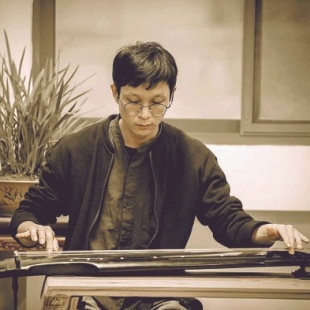On a string and a prayer


Probably because of the freedom allowed in playing old pieces of music, guqin players don't often create new ones, but prefer practicing the older compositions in different styles, Yang Lan suggests. "From ancient times to today, altogether there are only about 600 pieces of guqin music," he says.
Luckily, after moving to Hangzhou, Zhejiang, in 2011, he was introduced to modern guqin master Cheng Gongliang, who corrected his way of playing and inspired him to better understand the music and the instrument. He also began to make guqin, gradually earning a living by doing so.
"The craft of making guqin is not very complicated. The most difficult part is to identify the unique musical tone of the instrument you're making, which requires a lot of time and experience," says Yang Lan.
Although he received guidance from various people at different stages of his life, he has mainly learned to play and make guqin by himself. In his eyes, being self-taught is very important.
"Although I left school before I even graduated from junior high school, I learned by myself later. I believe that it is the most important way of receiving education, and we should continue to learn throughout our lives.
"At the end of the day, even with good teachers or education systems, the core of understanding knowledge is to establish our own feeling of it, and then receive its feedback to us, so that we can really master it. That is not different from being self-taught," says Yang Lan.
He adds that self-education requires a person to have a clear understanding of themselves, and be able to work as both a student and a teacher who can supervise themselves.
But he also admits there are risks of quitting school at a young age. "Such a choice is dangerous. It was a fluke that I didn't become self-indulgent. Since I left school, I was lucky enough to meet different people in my life to guide me."
In the eyes of Le, Yang Lan is talented. "He has good instinct when searching for what he really likes and finding those who can help him."
He also teaches guqin now, and that has urged him to consider what people can gain from learning it.
He says there have been very few professional guqin players throughout history. In fact, it was mostly members of the literati who became well-known for playing it.
"So the main object, from my perspective, is to receive and deliver an aesthetic education. Through learning, we can become sensitive to sounds, and aware of the differences between musical tones. Since the music is created through our movements, we can also become more sensitive to ourselves," says Yang Lan.





































